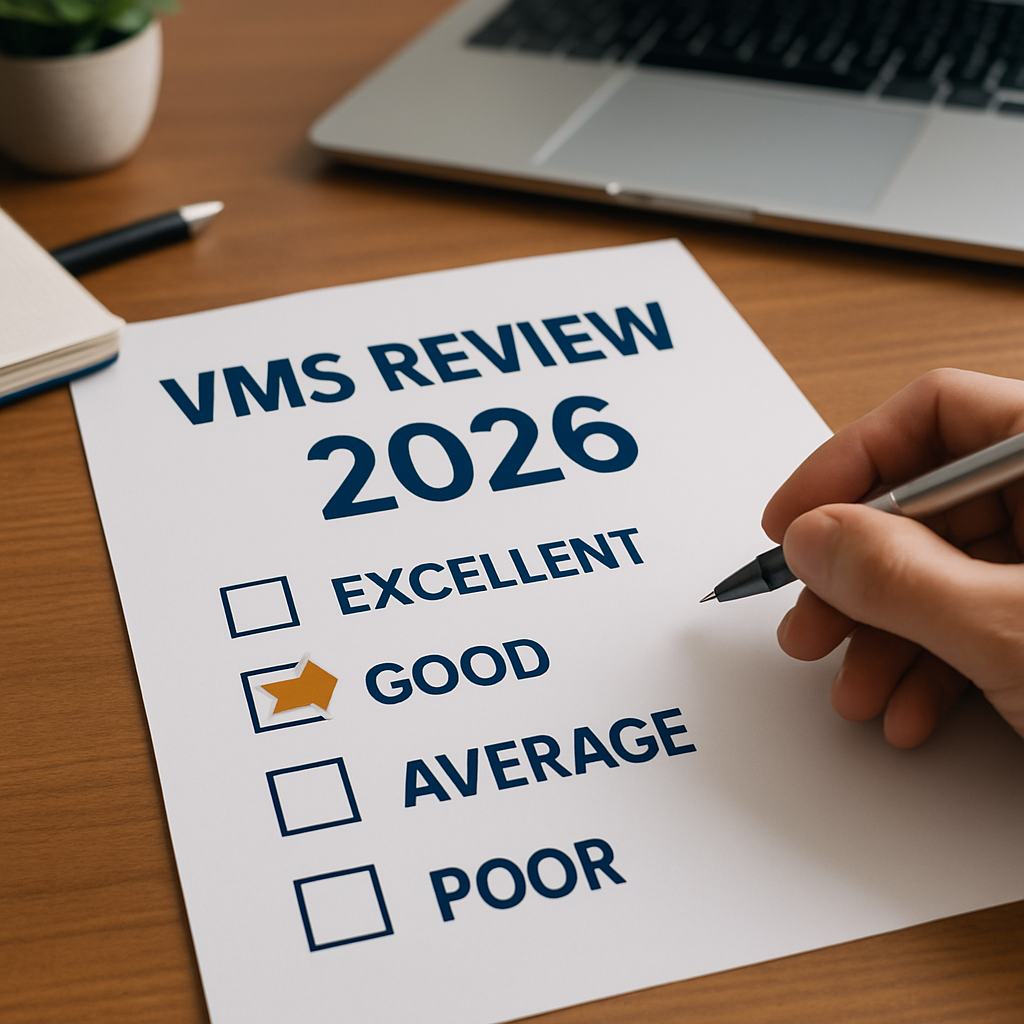In the current digital age, governments and public sector organizations are increasingly relying on contingent workers. This trend highlights the critical need for an effective and streamlined process to manage the vendors providing these workers. This article explores the use of a Vendor Management System (VMS) in a government and public sector setting, highlighting the benefits and challenges of implementing this type of software.
What is a Vendor Management System for Government?
A Vendor Management System is a web-based application that facilitates the procurement and management of staffing services – temporary, and, in some cases, permanent placement services – as well as the management of contractual workforce.
A VMS aids in consolidating vendor engagements, automating administrative tasks, and improving compliance and transparency.
Read more at What is a VMS?
Why Do Government Agencies Need a VMS?
Government agencies manage a multitude of projects that necessitate services from various vendors. Tracking each vendor, ensuring compliance with standards, monitoring their performance, and ensuring all contractual obligations are met is a challenging task.
A Vendor Management System simplifies this process by providing a centralized platform to manage all vendor-related activities.
Moreover, as government entities must ensure the optimal use of taxpayers' money, they need to demonstrate value for each dollar spent. A VMS allows for improved cost control and budget management through real-time monitoring and analytics.
What are the Benefits of a VMS for Government Agencies?
- Increased Efficiency:
A VMS can streamline and automate many tasks such as sourcing, procurement, invoicing, and performance tracking, reducing administrative burden and boosting efficiency. - Improved Transparency and Accountability: With a Vendor Management System, government agencies can track every step of the vendor management process, providing full visibility and traceability. This is crucial for auditing purposes and ensures accountability for all parties involved.
- Risk Mitigation: Through enhanced compliance tracking, a VMS helps to reduce the legal and financial risks associated with vendor management. The system can alert agencies about potential breaches or non-compliance issues before they escalate.
- Data-Driven Decisions: A VMS provides data analytics and reporting capabilities. Government agencies can leverage these insights to make data-driven decisions and improve their vendor strategies.
- Enhanced Vendor Relationships: A VMS can improve communication and collaboration with vendors. By providing clear expectations and real-time feedback, it fosters a positive relationship between the agency and the vendor.
Challenges in Implementing a VMS in Government
While the benefits are numerous, there can be challenges when adopting a VMS in a government context.
- Resistance to Change: Government agencies are often resistant to change due to entrenched processes and a culture that may fear the perceived threat of job loss due to automation.
- Integration with Existing Systems: The VMS needs to integrate with the agency's existing systems for procurement, finance, and HR. This integration can be complex and require significant time and resources.
- Data Privacy and Security: Government agencies handle sensitive data, so there must be stringent measures to ensure data security in the VMS.
Overcoming These Challenges
To effectively address these challenges, it is essential to engage in meticulous planning, involve stakeholders, and select an appropriate Vendor Management System provider. The chosen solution must be adaptable, scalable, and demonstrate a track record of success in comparable governmental settings.
An experienced VMS provider can offer implementation support, training, and post-implementation services to ensure the system meets your organization's needs.
Furthermore, for a successful VMS implementation, it's important to have an effective change management strategy. This includes clear communication of the benefits of the VMS, involving staff at all levels, and providing adequate training.
To ensure data privacy and security, agencies should look for a VMS that complies with relevant data protection guidelines such as GDPR.
Why Government Agencies Choose Conexis VMS
At Conexis VMS, we have experience managing and supporting several State and Local Government Agency programs and understands the unique needs that Public Procurement bodies have when contracting with a VMS Provider.
Our VMS supports:
- Budget controls and rate management
- SOC 2-compliant and ISO 27001 data security
- Supplier performance tracking
- Automated workflows and centralized oversight
Whether you're a state or provincial ministry, federal agency, or local government, Conexis gives you the tools to control labor costs and optimize workforce operations.
See Conexis VMS for Government
See How Conexis Can Help your Government Agency
If your government agency is under pressure to cut costs and improve visibility across your contingent workforce, now is the time to modernize your approach.
Take the Next Step with Conexis VMS
Conexis is an award-winning Vendor Management System, built on the latest technology and designed with the user in mind. Conexis stands out from other VMS solutions due to its unique functionality and features such as open APIs and flexible data solutions which allow our customers to create fast, easy, and cost-effective integrations, that can be done in under a week, compared to the legacy systems, which have to custom code each one.
Conexis delivers the expertise, reliability and security of enterprise systems, while offering the flexibility, user friendliness and tailored service you require. Learn more about our Company and why organizations Choose Conexis VMS.
Contact Us
Whether you are looking to change your VMS solution, or just getting started, we are here to help. Contact Us for a Free No-Obligation Consultation to discuss your workforce challenges (and get immediate actionable insights). See how easy Conexis is to use by taking a quick 2 minute Self-Guided Tour, or Book a Personal Demo Today!
Additional Articles on this Topic:





